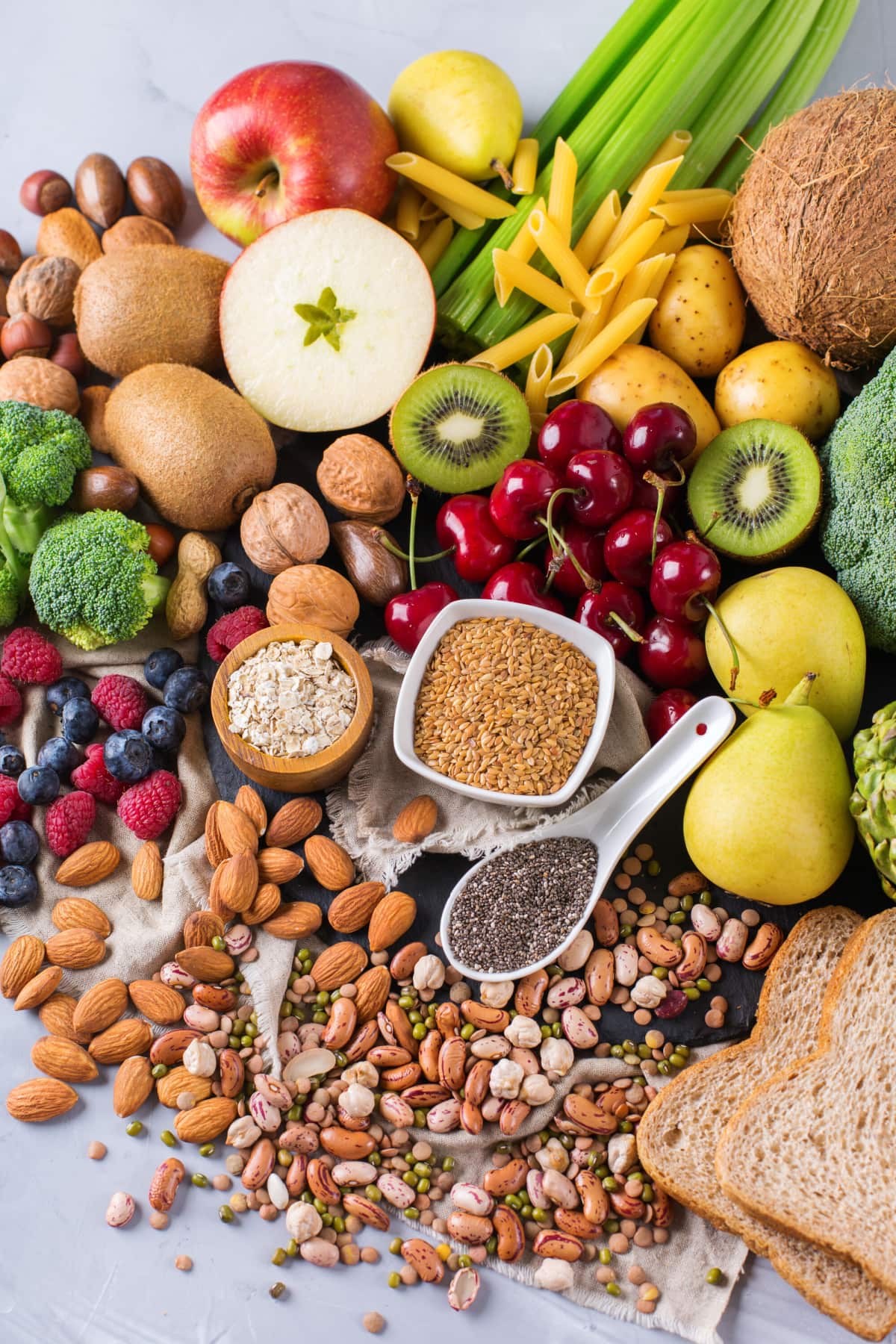How Much Fiber Per Day? Grams, Sources, Benefits, and More

Fiber is an essential nutrient that plays a crucial role in maintaining a healthy digestive system and overall well-being. Adequate fiber intake is associated with numerous health benefits, including improved bowel function, weight management, and reduced risk of chronic diseases such as heart disease and type 2 diabetes. In this comprehensive guide, we will explore the recommended daily fiber intake, the best food sources of fiber, the health benefits of fiber, and tips for increasing your fiber consumption.
Recommended Daily Fiber Intake:
The recommended daily fiber intake varies depending on factors such as age, sex, and overall health. The Institute of Medicine provides the following guidelines for daily fiber intake:
- Adult Men (aged 19-50): 38 grams per day
- Adult Men (aged 51 and older): 30 grams per day
- Adult Women (aged 19-50): 25 grams per day
- Adult Women (aged 51 and older): 21 grams per day
- Pregnant Women: 28 grams per day
- Breastfeeding Women: 29 grams per day
It is important to note that these are general recommendations, and individual needs may vary. It is always best to consult with a healthcare professional or registered dietitian for personalized advice.
Best Food Sources of Fiber:
A variety of foods can provide a good source of dietary fiber. Some of the best sources include:
Whole Grains:
Whole grains such as oats, brown rice, quinoa, and whole wheat bread and pasta are rich in fiber. Choose whole grain options over refined grains to maximize your fiber intake.
Fruits:
Many fruits are high in fiber, especially when consumed with the skin or pulp. Apples, berries, pears, and oranges are excellent choices.
Vegetables:
Vegetables like broccoli, Brussels sprouts, carrots, and leafy greens are packed with fiber. Aim to include a variety of vegetables in your diet to increase fiber intake.
Legumes:
Legumes, including beans, lentils, chickpeas, and split peas, are an excellent source of fiber. They are also rich in protein, making them a nutritious addition to any meal.
Nuts and Seeds:
Nuts and seeds, such as almonds, chia seeds, flaxseeds, and walnuts, are not only a good source of fiber but also provide healthy fats and other essential nutrients.
Health Benefits of Fiber:
Improved Digestive Health:
Fiber promotes regular bowel movements, prevents constipation, and maintains a healthy gut. It adds bulk to the stool, helping it pass through the digestive system more efficiently.
Weight Management:
Fiber-rich foods are often more filling and can help control appetite, leading to better weight management. Additionally, high-fiber foods tend to have fewer calories, making them a great choice for those trying to maintain or lose weight.
Heart Health:
A high-fiber diet is associated with a reduced risk of heart disease. Fiber helps lower cholesterol levels, regulate blood pressure, and reduce inflammation, all of which contribute to heart health.
Blood Sugar Control:
Fiber slows down the absorption of sugar, preventing rapid spikes in blood glucose levels. This is particularly beneficial for individuals with diabetes or those at risk of developing the condition.
Reduced Risk of Chronic Diseases:
Consuming an adequate amount of fiber has been linked to a lower risk of chronic diseases, including type 2 diabetes, certain cancers (such as colorectal cancer), and diverticular disease.
Tips for Increasing Fiber Consumption:
Gradually Increase Intake:
To prevent digestive discomfort, gradually increase your fiber intake over time. Start by adding small amounts of fiber-rich foods to your diet and gradually increase portions.
Choose Whole Foods:
Opt for whole foods instead of processed options. Whole grains, fruits, vegetables, and legumes are natural sources of fiber and provide additional nutrients compared to their processed counterparts.
Read Food Labels:
When shopping for packaged foods, check the nutrition labels for fiber content. Look for products that contain at least 3 grams of fiber per serving.
Incorporate Fiber into Every Meal:
Include fiber-rich foods in every meal and snack. For example, add vegetables to your omelet, include whole grains in your lunch, and enjoy a piece of fruit as a snack.
Stay Hydrated:
Drink plenty of water when increasing your fiber intake. Fiber absorbs water, so it is important to stay hydrated to maintain proper digestion.
Consider Supplements:
If you struggle to meet your daily fiber needs through diet alone, fiber supplements can be a helpful option. However, it is best to obtain fiber from whole foods whenever possible.
In conclusion, consuming an adequate amount of fiber is crucial for maintaining a healthy lifestyle. By following the recommended daily fiber intake, incorporating fiber-rich foods into your diet, and understanding the numerous health benefits of fiber, you can support your digestive health, manage your weight, and reduce the risk of chronic diseases. Remember to consult with a healthcare professional or registered dietitian for personalized guidance on your specific fiber needs and dietary requirements.
- Exploring Just Kratom Gold Shots: A Fun and Flavorful Experience! - September 30, 2024
- Comprehensive Guide to Hemp-Derived Delta-10 - November 2, 2023
- What are THC-JD Disposable Vapes - July 17, 2023



